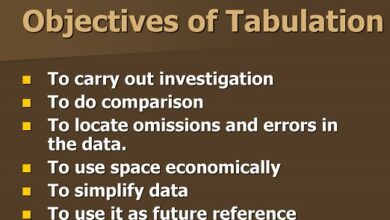What is ad hoc research/advantage/longitudinal research diff.
To do ad hoc research, you must take into account factors such as the subject of the study, its purpose, as well as the human team you have. Without forgetting another series of variables such as the methodology you want to use and even the budget.
There are two main types of studies in market research :
- Follow-up studies or long-term projects
- Market research projects that are adjusted according to needs
Let us know the characteristics of an ad-hoc research and how it differs from longitudinal research .
Difference between ad hoc research and longitudinal research
Ad hoc market research projects are usually short-term, one-time projects designed to address a specific goal.
Whereas longitudinal or long-term research is designed to study participants over a longer period of time or to measure a specific goal continuously.
In short, ad hoc projects are usually one-time projects, while longitudinal projects are more continuous research programs.
Advantages of ad hoc research
These are some of the benefits of conducting ad hoc research
1. Specificity
Ad hoc research is carried out for a specific purpose and offers high-quality data solutions for whatever problem your company faces.
Ad-hoc market research can be done as part of a single channel survey or it can be tailored to suit customer needs.
2. Save money and time
Ex profeso research studies are a unique project that quickly responds to the research needs of a company in a short period of time.
In the long term, this type of market research project saves an organization money by providing results quickly and efficiently without having to continually send surveys over a long period of time.
3. Customizable
A tailor-made ad-hoc market study can be conducted to help clients apply useful solutions to any problem. You can design a survey and select a specific method to carry out the research.
4. Ensures flexibility
Ad-hoc research projects allow the end user to modify the research and add additional questions to meet their research goals and objectives.
5. Streamline decision making
Data from an ad hoc study is used as a decision-making tool.
Depending on the client‘s needs, you can show a preview of things to improve. Once the data is analyzed, the client and your team can take steps to make those improvements in order to make the business run more efficiently.
6. Applicable to any business
This type of market study can be carried out for any industry, be it education, healthcare, hospitality, retail, etc.
Examples of an ad hoc research
One restaurant is vastly outperforming the other 10 establishments in the country.
The store’s revenue has continuously improved in the last 12 months and there is no data to explain why.
The management team commissioned a brand image survey of 400 residents who live less than 15 minutes from the premises.
The survey tests objectives such as:
- Knowledge of the chain and its competitors.
- The perception of the restaurant in relation to its close competitors.
- What they like and what they don’t like to consume
This study provides the management team with hard data to understand why that particular restaurant is a profit leader.
